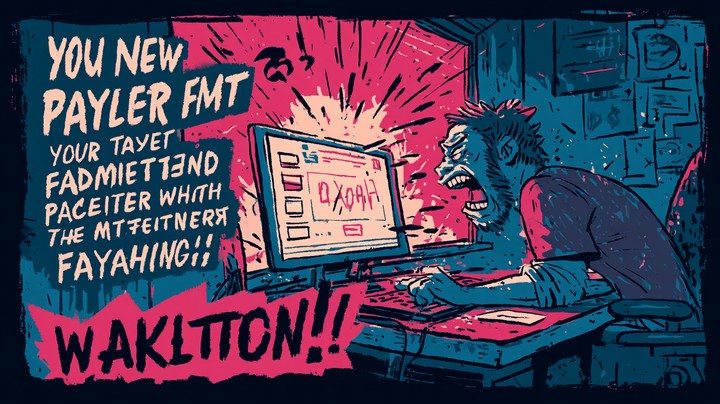When To Stick And When To Quit

This post was actually the Daily Stoic for June 6th: “When To Stick And When To Quit”. However, I find today’s stoic to be extremely interesting for entrepreneurs and, especially, for micropreneurs.
“Think of those who, not by fault of inconsistency but by lack of effort, are too unstable to live as they wish, but only live as they have begun.”
—SENECA, ON TRANQUILITY OF MIND, 2.6b”
In fact, I wanted to write an article about this topic for quite some time now. Thus, I am including it with the standard content of the blog.
The Three Guys At The Supermarket
Today’s stoic excerpt quotes an analogy from a Seth Godin book. In this analogy, there are three guys at the supermarket, deciding which queue to choose.
One of them always goes for one of the short lines and then sticks to that queue regardless of whether this queue becomes slower or how fast the others seem to go.
The second guy is the one that changes queues as soon as another one seems to be going faster than his own.
And then there’s this third person who changes queues only once: when his queue is clearly delayed and there’s an evidently better alternative.
Obviously, the last guy is the one who’s presented as the wiser one, and the model to imitate. By not sticking forever to a flawed path, and not frantically changing paths either, we stick to one direction until it’s clear that it’s the wrong one.
When To Stick And When To Quit In Life
During my life, I’ve done lots of different things. I’ve been a university teacher, hacker, composer, developer, entrepreneur… I’ve been in the military, and at a cubicle, I have traveled the world as a digital nomad and have become a husband.
Am I a mad person, or the second guy in our analogy, changing queues in my life in a split second?
In my case, I would say that I am closer to the third guy. I have pursued different roads until they made no sense for me anymore.
As an example, when I was working at the university -many years ago- I was trying to get my permanent position as an assistant teacher. The competition was intense: I needed to publish a lot of articles in high-impact journals, and there were many other researchers fighting for the same position.
During my last years there, I had grown disappointed with the academic world. To begin with, the main goal of writing articles was to receive public grants or raise funds, while the scientific rigor and academic sincerity came second. Additionally, there were some traditions I couldn’t agree with, like the fact that the department head had to appear as co-author -the first author, in fact- of every article published by the department, without even having read it.
This dissatisfaction, along with my concerns about ever being able to get a permanent position there, made me confront the head of the department. I asked him: “If I finish my thesis, get my Ph.D., and publish an amazing set of articles in high-impact magazines, what are my chances of staying here?”.
His answer was “50%”. 50% in the unlikely best-case scenario. I didn’t need to ask any further. I left the university soon after.

Nobody Is A Coward. Nobody Is Stubborn.
Hence, I agree that, in life, you need to commit to one path until it’s clear that it’s wrong and there’s a better alternative.
Some people would say that by changing paths, I have given up. There are people who are definitely braver than me or have the resources to stick to an uncertain path for longer.
Some people would even say that I stuck to those paths for longer than I should have. I worked in a cubicle for 7 years after all. In perspective, I think I should have quitted a lot earlier.
Every one of us has a different threshold, past which we need a change in our lives. Mine may be shorter than others. Some people would say that I should have stuck at the university, but I didn’t want to find myself at 36, with no job experience whatsoever, and having to leave the university. That sounded too scary for me.
So I made my decision. It may or may not have been wrong, but I am happy with it.
Hence, nobody is a coward, and nobody is too stubborn when it comes to life choices. We are the only ones who can judge that.
When To Stick And When To Quit In Business
Some stoics ago, I talked about how, in the beginning, I approached the entrepreneur world with the “Shiny object syndrome“.
While I still think that you need to be a little stubborn and ignore the opinion of others, I have completely changed my mind lately. To the point of almost affirming that the third guy -the one that changed queues as they become slower- is the model to imitate.
Let me elaborate on that.
After years of being an entrepreneur, and experiencing the “startup scene”, I have come to the conclusion that most of the times, we stick to a business for longer than we should. Way longer than we should.
I know people, especially in Madrid, that have been working on the same startup or project for years. They barely survive without revenue, customers, or growth. I have been there myself, with one of my first projects, Nouvement.
Will they finally make it? I really hope so. Some of them are friends of mine, and nothing would make me happier than that… But on many cases, I honestly doubt that’s going to happen.
Fail Fast, And I Mean Fast
When something works, it works right away. Unfortunately, this is something you don’t realize until you find something that works.
When you have a cool idea for a product and make a startup out of it –something you should never do-, you do some marketing campaigns, perhaps some Facebook ads, or AdWords… and you get modest negligible results. Then, we tend to think that we have not invested enough money in the campaigns, or that we could hire someone with more experience than us for future marketing efforts…
The truth is that nobody cares about that product. And nobody will. You need to be able to detect that as soon as possible and move on.
How fast is fast enough? That depends a lot on the market, the product, and the situation, but I would say that 3-6 months is enough.
There’s a big difference between something that’s going to work and something that won’t. If you don’t have customers -before even having a product- in six months… It’s time to look for other projects to invest your time and money.
Sounds too much like the third guy in the queues analogy? Perhaps, but I am convinced that it can help you save a lot of time, suffering and probably money.

The Truth About The Startup Ecosystem
Most startups fail. That’s an accepted, documented fact. Something similar happens for solopreneurs and small companies.
Then, why are there so many images depicting startups surrounded by confetti, cheerfully receiving a prize for raising their first gazillion dollars?
There’s a lot of hype in the startup ecosystem. And a lot of bullshit. You need to be aware of that before getting into this world. For every Zuckerberg out there, there are thousands of entrepreneurs that have wasted years of their lives working on something that never took off the ground. In the process, they lost money, time, and probably some friendships too.
And there are also lots of companies, accelerators, summits, conferences and service providers exploiting the startup bubble and the illusions of young entrepreneurs.
They are the ones who are making money here.
However, I am not discouraging you, I am warning you. If you want to play the game, go for it! But you have to know where you are getting into.
A lot of people in the startup ecosystem come from rich families, are in their 20-something and live with their parents, or otherwise can afford to live for 3-4 years without any income. That sloppy dresser, hipster guy, hair gathered in a bun that looks like he begged to get the money for his lunch, may probably be the son of a senior executive earning more a month than you do in a year (real case).
Unless that’s your case, you need to be able to survive without earnings. How much time can you afford it?
That’s why it’s so important to know right away if something it’s going to work… Or not. You shouldn’t wait for one year to get your first customer. Don’t actually write a line of code before having the first one.
Conclusion
Today’s Daily Stoic, “When To Stick And When To Quit”, deals with a very interesting topic. As I have pursued lots of different paths during my life, both personally and as an entrepreneur, I wanted to offer my view about the topic, beyond stoicism.




Comments ()